Hong Kong
is a dying city.
My first day in Hong Kong, my father took me to a popular restaurant. “Aside from you, I’m the youngest person here,” he remarked.
Hong Kong shows both the potentials and limits of Abundance politics. Its governance choices have been better than most urban cities. It has definitely changed politically. Its demographics are in decline. But whenever I find myself on the streets of Hong Kong, its fall feels incredibly overdetermined.
For all its crumbling, Hong Kong has remarkably little crime and pollution. Relative to the West, Hong Kong builds more housing and has lower crime. It regularly builds 40+ story buildings. Hong Kong has built into the mountains and reclaimed land from the sea. 25% of its developed land is reclaimed shoreland for new construction. It’s a strong example of the thesis that low crime makes it easier to build a political coalition for more housing, commonly heard when comparing the liberal West and East Asia.
Hong Kong fights to bring down prices in more controversial ways. One radicalizing thing about East Asia (China, Singapore, Malaysia, and Hong Kong) is the acceptance of natural class differences. The Baumol effect is a choice. You can have perfectly functional (perhaps even more functional) societies with massive income inequality. And if you do, you will have 3-6x lower costs of food, transportation, delivery, and most other goods. Every economically literate person knows the welfare state hurts when you have to pay your taxes. It’s less well known that it contributes to a stagnant, conformist society by pricing out the rapid business experimentation enabled by low-cost labor. Westerners travelling to East Asia often remark that food and drinks are much more competitive and generative in the East — take the drink variation in Western coffee shops versus Eastern bubble tea stores. Easterners come up with new drinks practically every week. The same is true for many everyday consumer goods and services. Maybe that’s incompatible with democracy. If it is, that’s democracy’s loss.
On the other hand, lower costs have not spared this city from the seemingly inevitable pessimism, infertility, and credentialism problems as every other Western civilization. Hong Kong is infected with climate catastrophism as much as any Western country. 2010s cringe social engineering is abound — paper straws, carboard utensils, bag bans, you name it. Being in Hong Kong and Shanghai within weeks, it maeks a clear difference in quality of life. Environmentalist signs proliferate across the city like a virus.
Nostalgia is as strong as any city in the West. One popular Hong Kong cafe chain is an Asian Denny’s, literally immortalizing the 70s with employees who still wear blue jeans and pinstripe shirts.
They serve classic Hong Kong fast food dishes like traditional milk tea, French toast, and spaghetti bolognese. The food is well prepared, but it simply does not match the quality and complexity of modern cuisine. It’s difficult to explain the semi-random selection of Western foods entered into the Hong Kong culinary canon. Much of it comes from British inheritance, along with daily food shopping, double-decker buses, and British accents in english-language government announcements.
Bakeries in Hong Kong, Japan and Taiwan are magnificent — indisputably higher quality than France or the UK. They’ve convinced me that baking requires the form of quality control that is done uniquely well in East Asia, much like semiconductor manufacturing.
The nostalgia and climate politics of Hong Kong are carbon copies of the Western right and left, respectively. While Shanghai’s dynamism feels like America, Hong Kong feels like Europe in its geriatric decline. Pessimism, Malthusianism, and gerontocracy are pervasive. What’s worse, almost everyone feels like there is nothing they can do to reverse that trend. Let me be clear — prices are lower, service is better, and quality of life is higher. But the Hong Kong flavor of nihilistic managed decline is indistinguishable.
One last picture that didn’t fit anywhere:



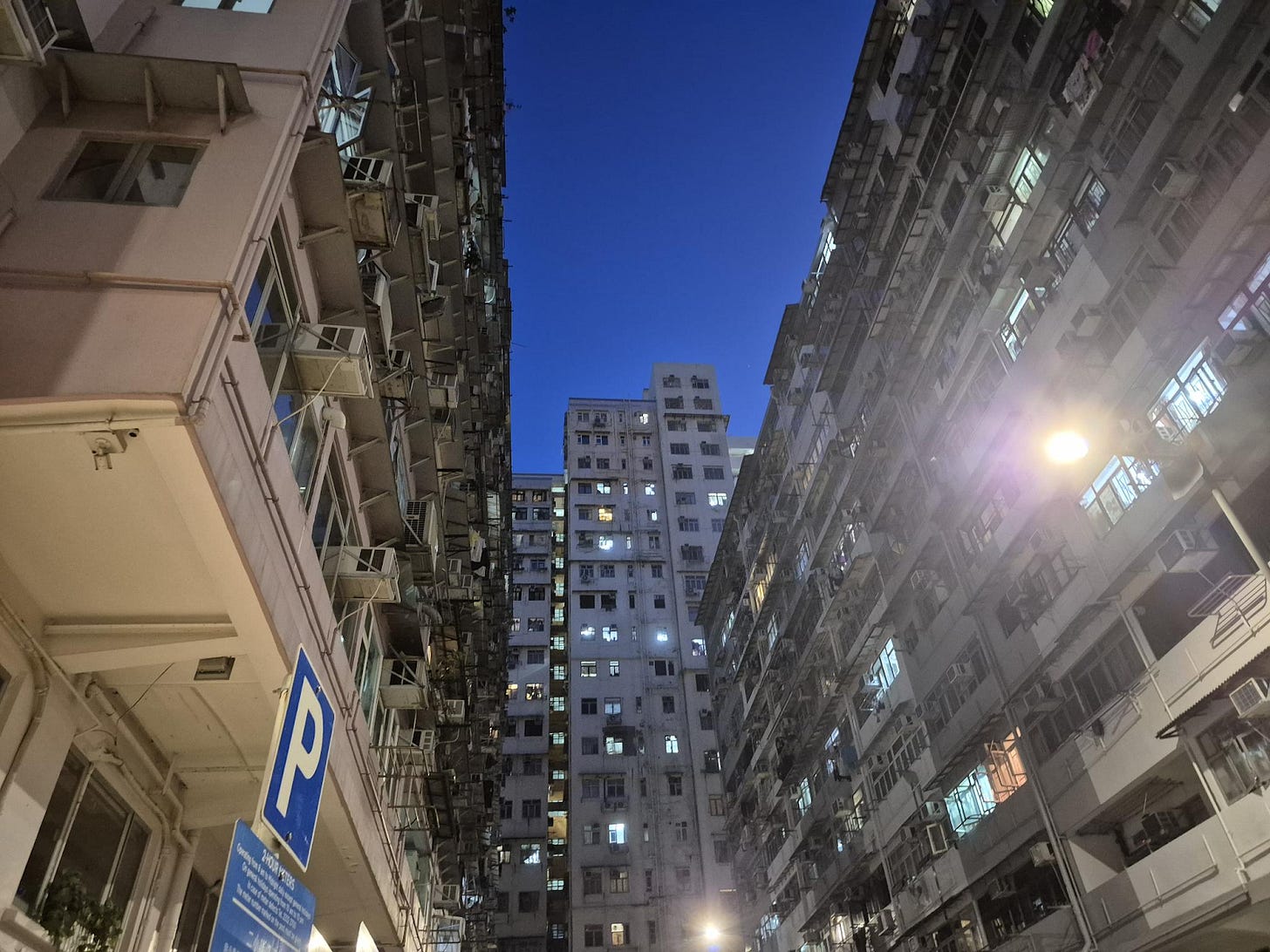
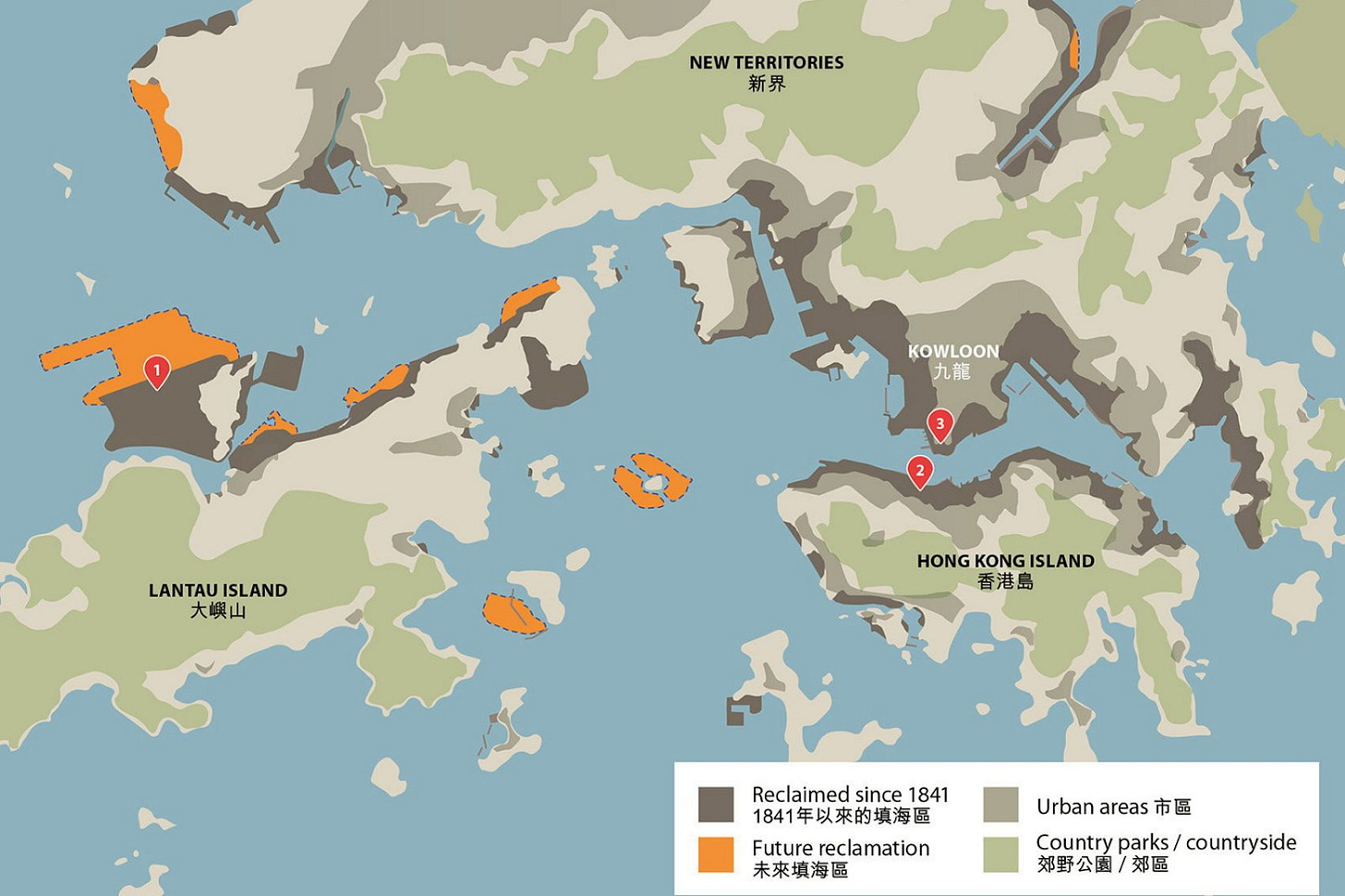
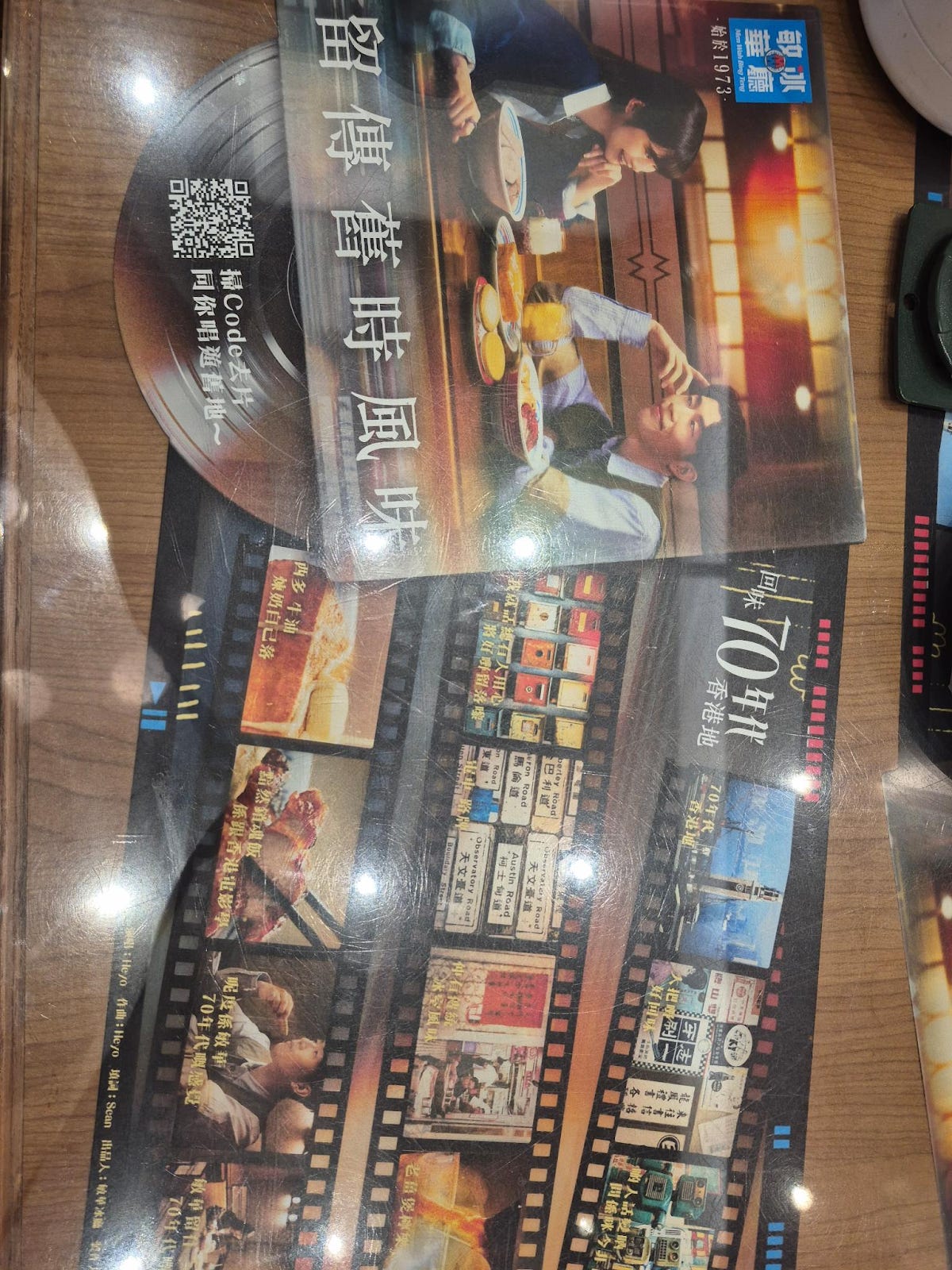
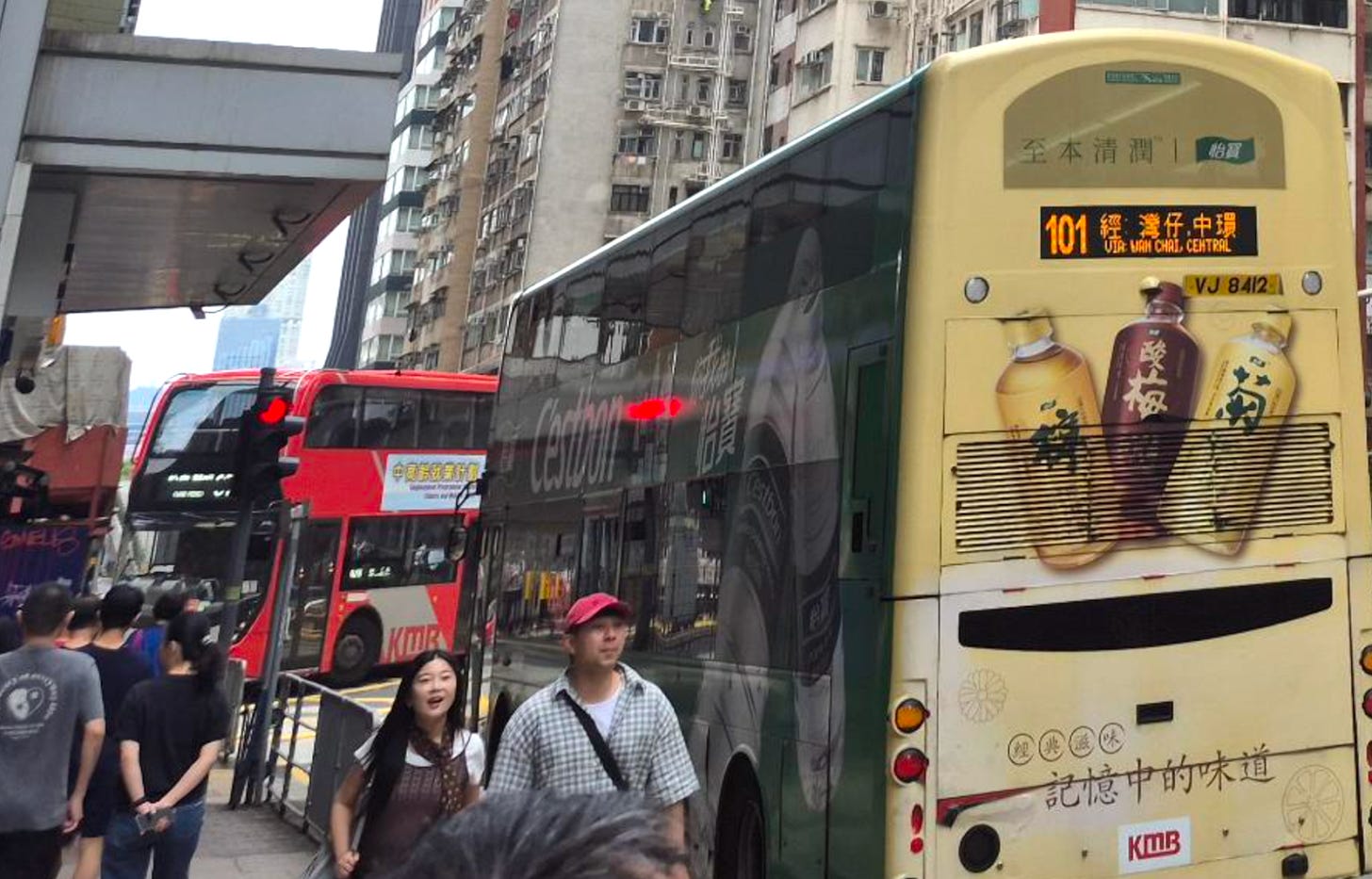
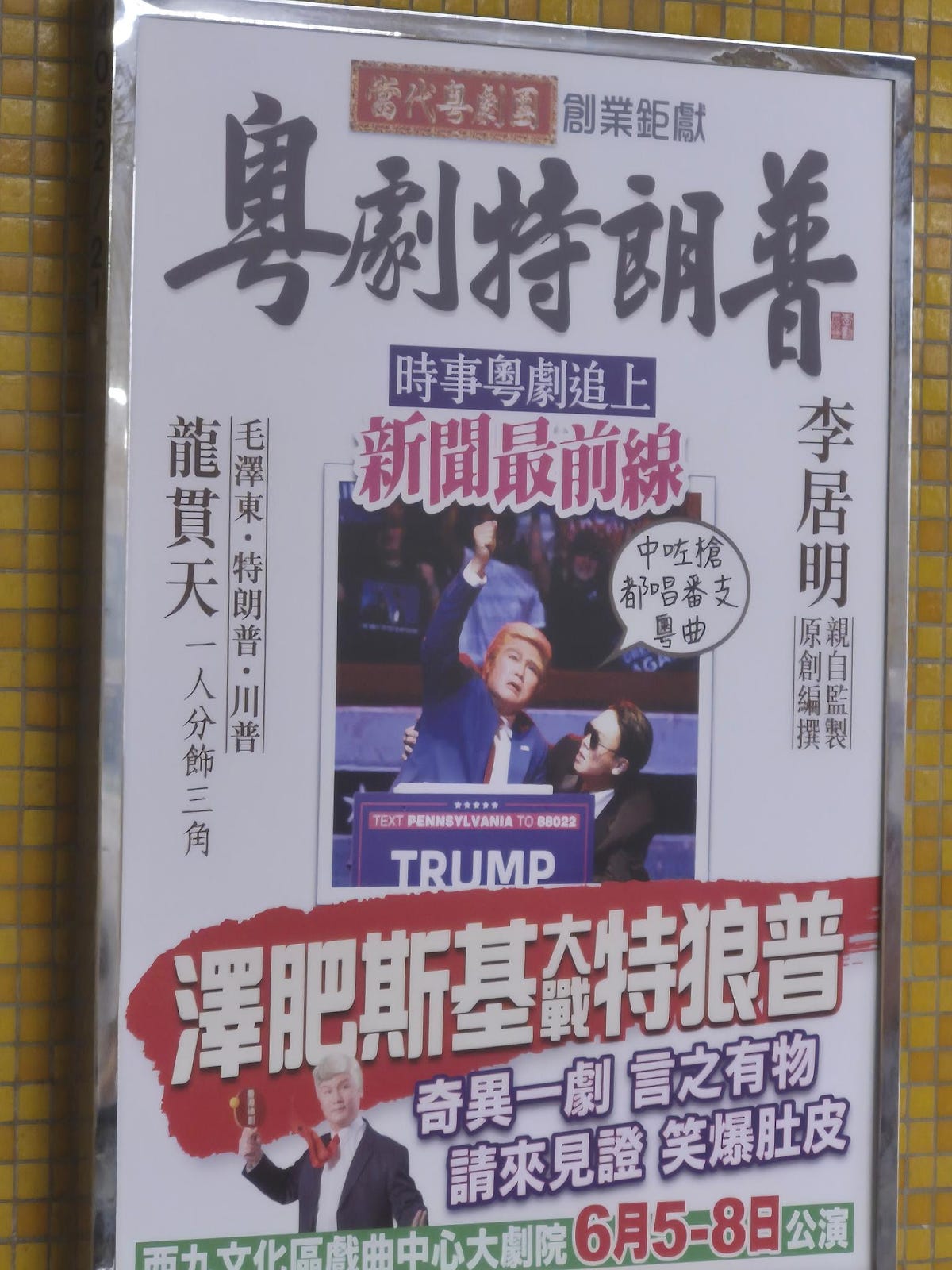
Good article. I had the chance to visit Hong Kong-Shenzhen-Guangzhou a few years ago and found the differences between the cities quite striking. Quite a different feel between the 3 cities - HK with a western mindset, Shenzhen with a pan-Chinese transient population, and Guangzhou being like HK's Cantonese element minus the Brit pretenses.
I remember going to a local market to buy some tea to take back home to my family and the lady running the tea shop gave me her business card saying that she had contacts with plastic-mold injection and other factory-related things. Lady was ready to do business! Not many other places in the world can you get connected to set up a production line so quickly.
Exellently gentle wakeup call to Americans who know nothing of East Asia, but whose national leadership--and especially the Neocons infesting the government's highest, most influential and powerful echelons--are Hell-bent on enmity. Wholly inexcusable and without basis, but still an ugly fact. Perhaps factual learning will help cure this. Thank you!